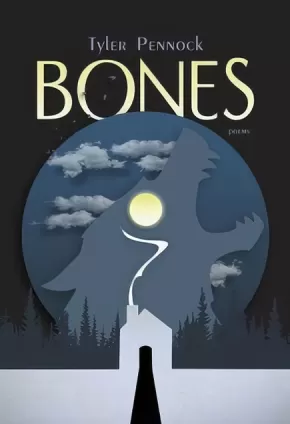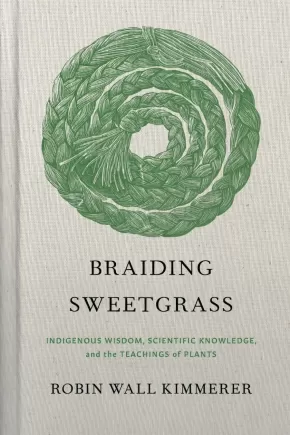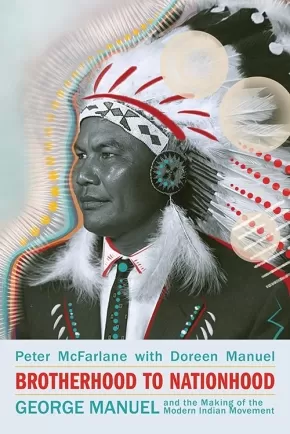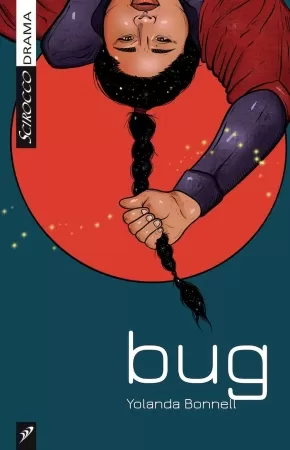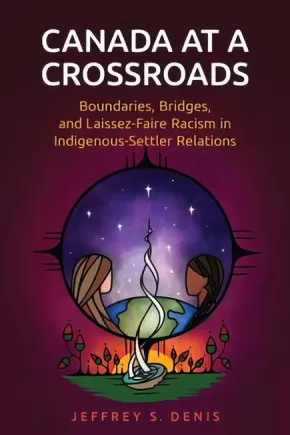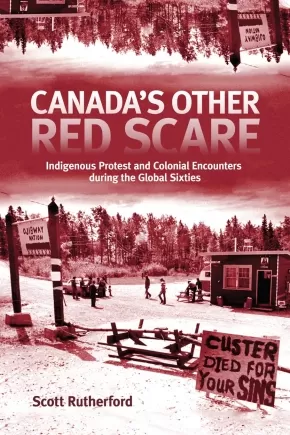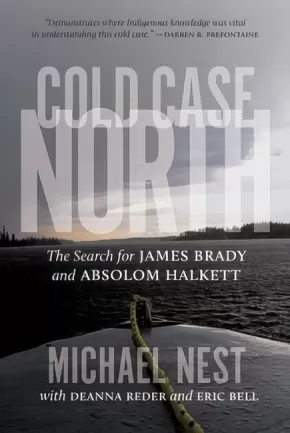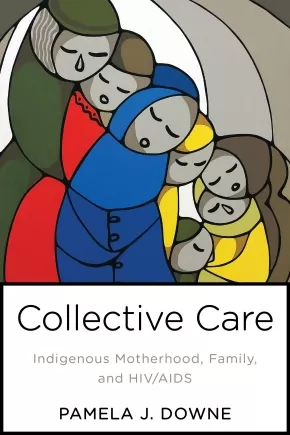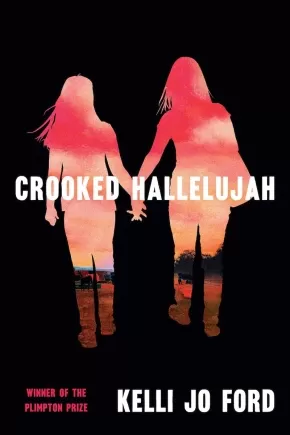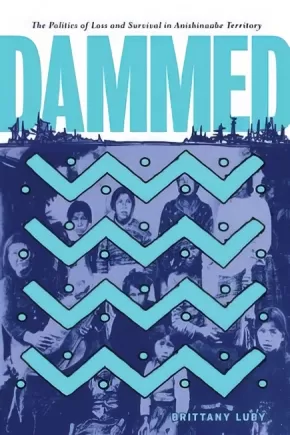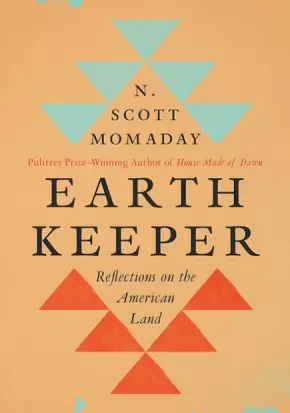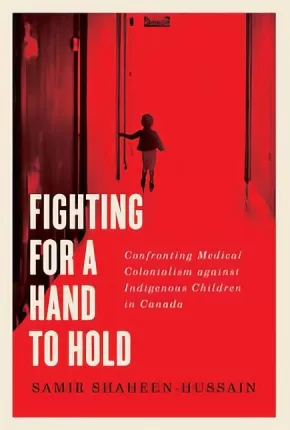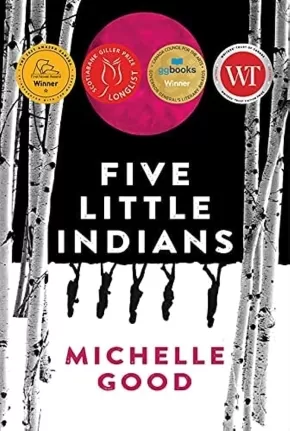Indigenous Studies
Synopsis:
Poems about a young two-spirit Indigenous man moving through shadow and trauma toward strength and awareness. Bones, Tyler Pennock's wise and arresting debut, is about the ways we process the traumas of our past, and about how often these experiences eliminate moments of softness and gentleness. Here, the poem's journey inward, guided by the world of dreams, seeking memories of a loving sister lost beneath layers of tragedy and abuse. With bravery, the poems stand up to the demons lurking in the many shadows of their lines, seeking glimpses of a good that is always just out of reach. At moments heartrending and gut-punching, at others still and sweet, Bones is a collection of deep and painstaking work that examines the human spirit in all of us. This is a hero's journey and a stark look at the many conditions of the soul. This is a book for survivors, for fighters, for dreamers, and for believers.
Reviews
"Here is a spare and urgent voice that speaks of 'wounds and beauty,' that gestures to a story of trauma and abuse while offering us a potent journey of self-reckoning and reclamation. Bones entwines brutality with the deepest tenderness and in its clear-eyed way asks us, as poetry must, to re-see the world." --Catherine Bush, author of Accusation and The Rules of Engagement
"Tyler Pennock's poetry unfurls like breath: measured, light, caught, whispering, and vital. It charts memory with a steady hand and unerring allegiance to locating the 'beauty/in terrible things.' Bones addresses the effects of intergenerational, state-sponsored trauma with enviable grace, inscribing and affirming life on the other side of overwhelming pain, abuse, and grief. It carries on, resilient, defiant, gazing at the stars, one breath at a time." --Laurie D. Graham, author of Settler Education
"Tyler Pennock's Bones is a soft meandering through the memories of the narrator's hearthome: a place in which trauma, kinship, abuse, and nostalgia cradle one another in a circle. Here, poetics are deployed to inspect the most minute of objects with such wild abandon that the narrator transplants us into a world rife with sharpness so as to make the image complete, focussed, lifelike, photographic even as he continually 'wish[es he] were like water'. Here we find memory and dream animated in equal measure: two spirits sitting in a basement, a headless mother, a white bear, wihtiko, and a sister slowly vanishing. Lyrical, witty, heart-wrenching, and empowering, Pennock's debut book of poetry is a contemplative epic asking us to ponder the ethics of remembrance in all of its lacings of razing and revitalization." --Joshua Whitehead, author of Full-Metal Indigiqueer and Jonny Appleseed
Additional Information
104 pages | 6.00" x 8.75"
Synopsis:
Updated with a new introduction from Robin Wall Kimmerer, the special edition of Braiding Sweetgrass celebrates the book as an object of meaning that will last the ages. Beautifully bound with a new cover featuring an engraving by Tony Drehfal, this edition includes a bookmark ribbon, a deckled edge, and five brilliantly colored illustrations by artist Nate Christopherson. In increasingly dark times, we honor the experience that more than 350,000 readers in North America have cherished about the book—gentle, simple, tactile, beautiful, even sacred—and offer an edition that will inspire readers to gift it again and again, spreading the word about scientific knowledge, indigenous wisdom, and the teachings of plants.
As a botanist, Robin Wall Kimmerer has been trained to ask questions of nature with the tools of science. As a member of the Citizen Potawatomi Nation, she embraces the notion that plants and animals are our oldest teachers. In Braiding Sweetgrass, Kimmerer brings these two lenses of knowledge together to take us on “a journey that is every bit as mythic as it is scientific, as sacred as it is historical, as clever as it is wise” (Elizabeth Gilbert).
Drawing on her life as an indigenous scientist, and as a woman, Kimmerer shows how other living beings—asters and goldenrod, strawberries and squash, salamanders, algae, and sweetgrass—offer us gifts and lessons, even if we've forgotten how to hear their voices. In reflections that range from the creation of Turtle Island to the forces that threaten its flourishing today, she circles toward a central argument: that the awakening of ecological consciousness requires the acknowledgment and celebration of our reciprocal relationship with the rest of the living world. For only when we can hear the languages of other beings will we be capable of understanding the generosity of the earth, and learn to give our own gifts in return.
Educator Information
Includes an updated introduction from the author.
Additional Information
456 pages | 5.50" x 8.50" | Hardcover
Synopsis:
Charged with fresh material and new perspectives, this updated edition of the groundbreaking biography From Brotherhood to Nationhood brings George Manuel and his fighting tradition into the present.
George Manuel (19201989) was the strategist and visionary behind the modern Indigenous movement in Canada. A three-time Nobel Peace Prize nominee, he laid the groundwork for what would become the Assembly of First Nations and was the founding president of the World Council of Indigenous Peoples. Authors Peter McFarlane and Doreen Manuel follow him on a riveting journey from his childhood on a Shuswap reserve through three decades of fierce and dedicated activism.
In these pages, an all-new foreword by celebrated Mi'kmaq lawyer and activist Pam Palmater is joined by an afterword from Manuel’s granddaughter, land defender Kanahus Manuel. This edition features new photos and previously untold stories of the pivotal roles that the women of the Manuel family played and continue to play in the battle for Indigenous rights.
Reviews
“Brotherhood to Nationhood is more than just a biography of the life of George Manuel; it demonstrates the roots of an Indigenous internationalism and political theory that is grounded in the ethics, knowledge, and practices of the Secwepemc people.” – Leanne Betasamosake Simpson, author of As We Have Always Done
Educator Information
Table of Contents
Foreword - Dr. Pamela Palmater
Preface - Peter McFarlane
Preface - Doreen Manuel
Part I. The Neck of the Chicken
1. Paradise, Paradise Lost, 1960
2. The Hard-Luck Shuswap Kid, 1920–1932
3. White Plague, Red Victims, 1932–1954
4. Local Agitator to Provincial Leader, 1955–1960
5. A Future for Your Children, 1960–1963
Part II. Building the National Movement
6. Community Development and the Arthur Laing Gang, 1965–1967
7. Down the Garden Path: Chretien Andras Consultations, 1968–1969
8. From White Paper to Red Paper, 1969–1970
9. The National Chief
10. The National Indian Philosophy, 1971–1972
Part III. Indian Shogun
11. International Travels
12. Land Title and the James Bay Battle, 1972–1973
13. Red Power
14. Political Eruptions in British Columbia, 1975
15. A Voice for the Fourth World, 1975–1976
16. Back to British Columbia,1976–1977
17. The Peoples’ Movement, 1977–1979
18. Constitutional Express, 1980
Part IV. Final Days
19. European Express, 1981–1982
20. Passing the Torch, 1982–1989
Epilogue
Afterword - Kanahus Manuel
Additional Information
402 pages | 6.00" x 9.00" | Revised, 2nd Edition
Synopsis:
bug is a solo performance and artistic ceremony that highlights the ongoing effects of colonialism and intergenerational trauma experienced by Indigenous women, as well as a testimony to the women's resilience and strength. The Girl traces her life from surviving the foster care system to her struggles with addictions. She fights, hoping to break the cycle in order to give her daughter a different life than the one she had. The Mother sits in Alcoholics Anonymous meetings, recounting memories of the daughter that was taken from her, and the struggles of living on the streets in Northern Ontario. They are both followed by Manidoons, a physical manifestation of the trauma and addictions that crawl across generations.
bug reveals the hard truths that many Indigenous women face as they carve out a space to survive in contemporary Canada, while holding on to so much hope.
Reviews
"bug pulls back the curtain on the falsehood of reconciliation using storytelling and movement, bringing everything we've seen in the news and the history books into the heart and gut." - Mooney on Theatre
Educator Information
Recommended for grades 10 to 12.
Additional Information
80 pages | 5.50" x 8.50"
Synopsis:
Synopsis:
A detailed transnational history of Indigenous activism in Northwestern Ontario and its global significance.
Indigenous activism put small-town northern Ontario on the map in the 1960s and early 1970s. Kenora, Ontario, was home to a four-hundred-person march, popularly called "Canada's First Civil Rights March," and a two-month-long armed occupation of a small lakefront park. Canada's Other Red Scare shows how important it is to link the local and the global to broaden narratives of resistance in the 1960s; it is a history not of isolated events closed off from the present but of decolonization as a continuing process. Scott Rutherford explores with rigour and sensitivity the Indigenous political protest and social struggle that took place in Northwestern Ontario and Treaty 3 territory from 1965 to 1974. Drawing on archival documents, media coverage, published interviews, memoirs, and social movement literature, as well as his own lived experience as a settler growing up in Kenora, he reconstructs a period of turbulent protest and the responses it provoked, from support to disbelief to outright hostility. Indigenous organizers advocated for a wide range of issues, from better employment opportunities to the recognition of nationhood, by using such tactics as marches, cultural production, community organizing, journalism, and armed occupation. They drew inspiration from global currents - from black American freedom movements to Third World decolonization - to challenge the inequalities and racial logics that shaped settler-colonialism and daily life in Kenora. Accessible and wide-reaching, Canada's Other Red Scare makes the case that Indigenous political protest during this period should be thought of as both local and transnational, an urgent exercise in confronting the experience of settler-colonialism in places and moments of protest, when its logic and acts of dispossession are held up like a mirror.
Reviews
"I was truly impressed with this book. Rutherford provides detailed insights into historical developments in the Kenora region and the post–World War II racism that is so fundamental in shaping current Indigenous realities. The almost seamless integration with global political commentary and international debates is simply superb. There are tough concepts presented here – and folks will find them uncomfortable – but a study like this is much overdue and will attract considerable international attention." - Ken Coates, Johnson-Shoyama Graduate School of Public Policy, University of Saskatchewan
Educator Information
Table of Contents
Acknowledgments / vii
Figures follow page viii
Introduction: The Town with a Bad Name / 3
1 Canada’s Alabama? Race, Racism, and the Indian Rights March in Kenora / 21
2 “Resolving Conflicts”: Culture, Development, and the Problem of Settlement / 40
3 “The quest for self-determination”: The Third World, Anti-colonialism, and “Red Power” / 62
4 “Nobody seems to listen”: The Violent Death Report and Resistance to Continuing Indifference / 83
5 The Anicinabe Park Occupation: Red Power and the Meaning of Violence in a Settler Society / 104
6 The Native People’s Caravan: Surveillance, Agents Provocateurs, and Multi-racial Coalitions / 124
Conclusion: Dear Louis Cameron / 145
Notes / 153
Bibliography / 187
Index / 203
Additional Information
208 pages | 5.98" x 9.01"
Synopsis:
For fans of true crime, an unsolved mystery of missing persons, police conspiracies, and private investigations in an Indigenous community in northern Canada.
Métis leader James Brady was one of the most famous Indigenous activists in Canada. A communist, strategist, and bibliophile, he led Métis and First Nations to rebel against government and church oppression. Brady’s success made politicians and clergy fear him, and he had enemies everywhere.
In 1967, while prospecting in Saskatchewan with Cree Band Councillor and fellow activist Absolom Halkett, both men vanished without a trace from their remote lakeside camp. For 50 years rumours swirled of secret mining interests, political intrigue, assassination, and murder. Cold Case North is the story of how a small team, with the help of a local Indigenous community, exposed police failure in the original investigation, discovered new clues and testimony, and gathered the pieces of the North’s most enduring missing persons puzzle.
Reviews
“This engrossing account charts the efforts of three dedicated people to determine the fate of two missing Indigenous men in the north of Canada. [...] Meticulously researched, this smoothly written tale of injustice showcases the authors’ tenacity and arouses the reader’s indignation. This is a scathing rebuke of the RCMP’s failure to take the case of missing Indigenous people seriously.” —Publisher's Weekly
“Like too many cases involving missing and murdered Indigenous people, authorities failed to ensure that Brady and Halkett’s deaths were properly investigated. This book helps get to the bottom of the fate of these two men, and demonstrates why investigators should never dismiss the knowledge of Indigenous peoples.” —Darren Prefontaine, author of Gabriel Dumont
“Cold Case North is part true crime thriller, part gripping mystery about the disappearance of Métis legend James Brady and Absolom Halkett in northern Saskatchewan. It is also about Indigenous knowledge, investigative incompetence, and the stuff of legend.” —Paul Seesequasis, author of Blanket Toss Under Midnight Sun
“A fascinating search for the truth, Cold Case North unravels the layers of a decades’ old mystery. It is about how communities hold knowledge for generations, and how missing loved ones are never forgotten.” —Katherena Vermette, author of River Woman and The Break
Additional Information
272 pages | 5.00" x 7.00"
Synopsis:
Collective Care provides an ethnographic account of urban Indigenous life and caregiving practices in the face of Saskatchewan’s HIV epidemic. Based on a five-year study conducted in partnership with AIDS Saskatoon, the book focuses on the contrast between Indigenous values of collective kin-care and non-Indigenous models of intensive maternal care. It explores how women and men negotiate the forces of HIV to render motherhood a site of cultural meaning, personal and collective well-being, and, sometimes, individual and community despair. It also introduces readers to how HIV is Indigenized in western Canada and how all HIV-affected and -infected mothers must negotiate this cultural and racialized terrain.
Featuring in-depth narrative interviews, notes from participant observation in AIDS Saskatoon’s drop-in centre, and a photovoice component, this book offers an accessible account of an engaged anthropologist’s work with a community that is both vulnerable and resilient. Each chapter begins with an ethnographic vignette that introduces central concepts, including medical anthropology, syndemics, kinship, and Indigeneity, with the overall aim of humanizing those affected by HIV in western Canada and beyond.
Reviews
"By sharing perspectives that are often ignored, this work provides important insight not found elsewhere. The reliance on the words of Indigenous women is a wonderful example of the kind of allyship we have been calling for. Rather than speaking for the women, Pamela J. Downe has created a literary space where they can speak for themselves. The truth of their stories comes through in vibrant quotes about loving and raising children in a collective way." — Dawn Lavell-Harvard, Director of the First Peoples House of Learning, Trent University, and former President of the Native Women’s Association of Canada
"Collective Care icontributes to our understanding of Indigenous family life and the lives of those affected by HIV/AIDS. Because the book focuses on family relationships and care in a context that is somewhat familiar to students, yet different from more frequently studied communities with HIV/AIDS. This book will be a useful tool for teaching." — William McKellin, Assistant Professor in the Department of Anthropology, University of British Columbia
Educator Information
Table of Contents
Preface
Chapter 1: Beginning
Chapter 2: Family
Chapter 3: Motherhood
Chapter 4: Fatherhood
Chapter 5: Loss
Chapter 6: Love
Chapter 7: Closing
References
Additional Information
176 pages | 6.00" x 9.00" | Paperback
Synopsis:
It’s 1974 in the Cherokee Nation of Oklahoma and fifteen-year-old Justine grows up in a family of tough, complicated, and loyal women presided over by her mother, Lula, and Granny. After Justine’s father abandoned the family, Lula became a devout member of the Holiness Church – a community that Justine at times finds stifling and terrifying. But Justine does her best as a devoted daughter until an act of violence sends her on a different path forever.
Crooked Hallelujah tells the stories of Justine—a mixed-blood Cherokee woman— and her daughter, Reney, as they move from Eastern Oklahoma’s Indian Country in the hopes of starting a new, more stable life in Texas amid the oil bust of the 1980s. However, life in Texas isn’t easy, and Reney feels unmoored from her family in Indian Country. Against the vivid backdrop of the Red River, we see their struggle to survive in a world—of unreliable men and near-Biblical natural forces, like wildfires and tornados—intent on stripping away their connections to one another and their very ideas of home.
In lush and empathic prose, Kelli Jo Ford depicts what this family of proud, stubborn, Cherokee women sacrifices for those they love, amid larger forces of history, religion, class, and culture. This is a big-hearted and ambitious novel of the powerful bonds between mothers and daughters by an exquisite and rare new talent.
Reviews
"A book that you want to share with everyone you know and one that you are desperate to keep in your own possession. A masterful debut and a new and thrilling voice for readers across the globe." —Sarah Jessica Parker, on Instagram
"In “Crooked Hallelujah,” a collection of interwoven story-chapters, Kelli Jo Ford takes her readers on a compelling journey through the evolving terrain of multiple generations of women." —Diana Abu-Jaber, The Washington Post
Additional Information
304 pages | 5.50" x 8.25"
Synopsis:
Dammed: The Politics of Loss and Survival in Anishinaabe Territory explores Canada’s hydroelectric boom in the Lake of the Woods area. It complicates narratives of increasing affluence in postwar Canada, revealing that the inverse was true for Indigenous communities along the Winnipeg River.
Dammed makes clear that hydroelectric generating stations were designed to serve settler populations. Governments and developers excluded the Anishinabeg from planning and operations and failed to consider how power production might influence the health and economy of their communities. By so doing, Canada and Ontario thwarted a future that aligned with the terms of treaty, a future in which both settlers and the Anishinabeg might thrive in shared territories.
The same hydroelectric development that powered settler communities flooded manomin fields, washed away roads, and compromised fish populations. Anishinaabe families responded creatively to manage the government-sanctioned environmental change and survive the resulting economic loss. Luby reveals these responses to dam development, inviting readers to consider how resistance might be expressed by individuals and families, and across gendered and generational lines.
Luby weaves text, testimony, and experience together, grounding this historical work in the territory of her paternal ancestors, lands she calls home. With evidence drawn from archival material, oral history, and environmental observation, Dammed invites readers to confront Canadian colonialism in the twentieth century.
Additional Information
256 pages | 6.00" x 9.00" | 2 maps, index, bibliography
Synopsis:
This guide is designed to educate non-Indigenous counsellors on the impacts of the assimilation policies that still affect Indigenous people and communities. Mainstream counselling approaches are integrated with Indigenous spiritual healing practices for Indigenous clients and their families who have been impacted by sexual abuse. Indigenous cultures contain many strategies to help those who have been traumatized, and sharing this traditional knowledge with service providers will assist in the understanding of how to incorporate cultural strategies in their practices.
This book provides exercises and handouts.
Reviews
"I found this guide to be of tremendous benefit as an important first step for reconciliation for social workers, counsellors and psychologists in the era of reconciliation. This guide provides a literature review combined with a detailed list of practice activities and case illustrations to show of how traditional healing ceremonies and traditions can be used effectively with counselling." — Donalda Halabuza, PhD, Faculty of Social Work, University of Regina
"Decolonizing the Healing Process from Sexual Trauma is a riveting journey into the acquired base of a skilled therapist. Educating those in the mental health field, McArthur gently offers culturally appropriate guidance when working with First Nations people who have experienced sexual abuse." — Cyndi Gray Williams, MSW, RSW, DVATI, RCAT, SEP, Registered and Licensed Art Therapist, Master’s Prepared and Registered Clinician, Somatic Experiencing (TM) Trauma Practitioner
Additional Information
66 pages | 6.00" x 9.00"
Synopsis:
A magnificent testament to the earth, from Pulitzer Prize-winning novelist and poet N. Scott Momaday.
One of the most distinguished voices in American letters, N. Scott Momaday has devoted much of his life to celebrating and preserving Native American culture, especially its oral tradition. A member of the Kiowa tribe who was born and grew up on Indian reservations throughout the Southwest, Momaday has an intimate connection to the land he knows well and loves deeply.
In Earth Keeper: Reflections on the American Land, he reflects on his native ground and its influence on his people. “When I think about my life and the lives of my ancestors, I am inevitably led to the conviction that I, and they, belong to the American land. This is a declaration of belonging. And it is an offering to the earth.” he writes.
Momaday recalls stories of his childhood, stories that have been passed down through generations, stories that reveal a profound and sacred connection to the American landscape and a reverence for the natural world.
In this moving and lyrical work, he offers an homage and a warning. Momaday reminds us that the Earth is a sacred place of wonder and beauty; a source of strength and healing that must be protected before it’s too late. As he so eloquently yet simply expresses, we must all be keepers of the Earth.
Reviews
“Poets and storytellers have always reminded us of our spiritual connections to the land and the world around us — passed along through dreams, stories, memories, and mythologies. Scott Momaday skillfully continues this tradition in Earth Keeper, from which we can all learn and benefit.”— Robert Redford
“Earth Keeper is a prayer for continuity in these days of uncertainty. I cannot tell you why I loved this book, I can only tell you I wept my way through it. Each page brought me closer to myself, a self I had lost in the pandemic. We need Scott Momaday's calm, clear prose and stories. Words are medicine. There is wisdom in sharing what one knows, especially at a time when we know so little. ‘Let me say my heart,’ he says. And he does.”— Terry Tempest Williams, author of Erosion: Essays of Undoing
"Dazzling. . . . In glittering prose, Momaday recalls stories passed down through generations, illuminating the earth as a sacrosanct place of wonder and abundance. At once a celebration and a warning, Earth Keeper is an impassioned defense of all that our endangered planet stands to lose."— Esquire
“Wonder abounds in these pages. . . . Short chapters of prose that read almost like prayers to the natural world.”— Kirkus Reviews
“Short but satisfying. . . . Using lyrical, heartfelt language, [Momaday] looks back on a life lived close to nature, and on the joy that natural wonders have given him. . . . At a time when bad news is in plentiful supply, readers will find Momaday’s words refreshing and comforting in their sincerity.”— Publishers Weekly
"A profound reflection on humanity's relationship with its terrestrial home, the planet Earth."— Booklist
“A collection of short essays as multilayered and majestic as the landscape that has been present in everything that Momaday has written. . . . [A] poetic love letter to the Earth.”— Minneapolis Star Tribune
Educator Information
From the Author's Note: "This book is a very personal account, a kind of spiritual autobiography."
Additional Information
80 pages | 5.00" x 7.12"
Synopsis:
Field Notes for the Self is a series of dark meditations: spiritual exercises in which the poem becomes a forensics of the soul. The poems converse with Patrick Lane, John Thompson, and Charles Wright, but their closest cousins may be Arvo Pärt’s tintinnabulations—overlapping structures in which notes or images are rung slowly and repeatedly like bells. The goal is freedom from illusion, freedom from memory, from “the same old stories” of Lundy’s violent past; and freedom, too, from the unreachable memories of the violence done to his Indigenous ancestors, which, Lundy tells us, seem to haunt his cellular biology. Rooted in exquisitely modulated observations of the natural world, the singular achievement of these poems is mind itself, suspended before interior vision like a bit of crystal twisting in the light.
Reviews
“Here is a poet of whom one can say—quietly, simply, with gratitude—that highest of praises: the real thing.” —Jane Hirshfield, author of The Beauty
“Randy Lundy has entered the place where the masters reside…” —Patrick Lane, author of Washita
Educator & Series Information
This work is part of the Oskana Poetry & Poetics series. Publishing new and established authors, Oskana Poetry & Poetics offers both contemporary poetry at its best and probing discussions of poetry’s cultural role. Oskana is the Cree word for "bones," and it is used with the blessing of Elder Noel Starblanket. The name reflects a commitment to speak to the deepest and most urgent issues of our time, including environmental crisis and Indigenous justice.
Additional Information
96 pages | 5.50" x 8.50"
Synopsis:
An exploration of anti-Indigenous systemic racism in Canadian health care and the medical establishment's role in colonial genocide.
Launched by healthcare providers in January 2018, the #aHand2Hold campaign confronted the Quebec government's practice of separating children from their families during medical evacuation airlifts, which disproportionately affected remote and northern Indigenous communities. Pediatric emergency physician Samir Shaheen-Hussain's captivating narrative of this successful campaign, which garnered unprecedented public attention and media coverage, seeks to answer lingering questions about why such a cruel practice remained in place for so long. In doing so it serves as an indispensable case study of contemporary medical colonialism in Quebec.
Fighting for a Hand to Hold exposes the medical establishment's role in the displacement, colonization, and genocide of Indigenous peoples in Canada. Through meticulously gathered government documentation, historical scholarship, media reports, public inquiries, and personal testimonies, Shaheen-Hussain connects the draconian medevac practice with often-disregarded crimes and medical violence inflicted specifically on Indigenous children. This devastating history and ongoing medical colonialism prevent Indigenous communities from attaining internationally recognized measures of health and social well-being because of the pervasive, systemic anti-Indigenous racism that persists in the Canadian public health care system - and in settler society at large.
Shaheen-Hussain's unique perspective combines his experience as a frontline pediatrician with his long-standing involvement in anti-authoritarian social justice movements. Sparked by the indifference and callousness of those in power, this book draws on the innovative work of Indigenous scholars and activists to conclude that a broader decolonization struggle calling for reparations, land reclamation, and self-determination for Indigenous peoples is critical to achieve reconciliation in Canada.
Reviews
"Fighting for a Hand to Hold denounces with ferocity the utterly inhuman, decades-long practice of separating children from their families during emergency medevacs in northern and remote regions of Quebec. In a precise, compelling, and well-documented narrative, Samir Shaheen-Hussain challenges our collective understanding of systemic racism and social determinants of health applied to Indigenous communities most dependent on medevac airlifts and most impacted by the non-accompaniment rule. An eye-opening, tough, and essential book." — Dr Joanne Liu, pediatric emergency physician and former international president of Médecins Sans Frontières
"In Fighting for a Hand to Hold Samir Shaheen-Hussain exposes the social, cultural, and historical structures that allow medical colonialism to hide in plain sight as it harms generations of Indigenous children and their families. It is an unflinching analysis that should be required reading in every medical school in the country." —Maureen Lux, professor, Brock University and author of Separate Beds: A History of Indian Hospitals in Canada, 1920s-1980s
"The memories of the Inuit children I attended as a young interpreter at the Montreal Children's Hospital came flooding back to me. The sad face of a child looking up at me: nurses informed me that he was not speaking, but I immediately recognized the fear in his face, in his eyes. As soon as I spoke to him in Inuktitut, he looked at me in disbelief, but in the next moment his tears began to roll and I could only sound out the Inuit sound of love, 'mmph,' and tell him it would be all right, that his mom or a relative would be arriving soon. I felt for that child, and as he began to relax and open up, we had a lovely conversation in Inuktitut. He did not feel so alone in this strange place he had just been deposited in, as if he were cargo. To this day, I still feel for him. Throughout all these years, we all have been made to believe that this is how things should work. It was one of those things we stayed quiet about for decades. But no longer. We Inuit, we are a people. We love our children. Fighting for a Hand to Hold helps us understand the issues of colonization in the medical system that have vexed us as Indigenous peoples. Today, we Inuit are working to bring our health back to our communities. Healthy communities and families mean self-governance to us, and the decolonization process will happen." - Lisa Qiluqqi Koperqualuk, vice-president of international affairs, Inuit Circumpolar Council Canada
Educator Information
Foreword by Cindy Blackstock, afterword by Katsi'tsakwas Ellen Gabriel
Table of Contents
Figures | xiii
Foreword Cindy Blackstock | xv
Preface and Acknowledgments | xxi
A Note to Readers | xxix
Part One Above All, Do No Harm
Timeline | 3
Introduction | 7
1 Medevac Airlifts in Quebec and the Non-Accompaniment Rule | 16
2 The #aHand2Hold Campaign: Confronting a System | 27
Part Two Structural Fault Lines in Health Care
3 Social Determinants of Health: Equality, Equity, and Limitations | 47
4 Recognizing Systemic Racism: A Social Justice Approach | 66
5 Medical Culture and the Myth of Meritocracy | 90
Part Three Medical Colonialism and Indigenous Children
6 A Little Matter of Genocide: Canada and the United Nations Convention | 113
7 From the Smallpox War of Extermination to Tuberculosis Deaths in Residential Schools | 122
8 Experimental Laboratories: Malnutrition, Starvation, and the BCG Vaccine | 135
9 Cruel Treatment: Indian Hospitals, Sanatoria, and Skin Grafting | 150
10 Gendered Violence: Forced Sterilization and Coercive Contraception | 165
11 Breaking Up Families: Child Welfare Services, Mass Evacuations, and Medical Disappearances | 179
12 Oral Histories and the Narrative of Genocide | 207
Part Four The Structural Determinants of Health and Decolonizing Our Future
13 Capitalism and the Cost of Caring | 217
14 History Matters: Colonialism, Land, and Indigenous Self-Determination | 236
15 Decolonizing Health Care: Reparations before Reconciliation | 253
Conclusion | 271
Afterword Katsi’tsakwas Ellen Gabriel | 277
References | 283
Index | 315
Additional Information
360 pages | 5.98" x 9.01" | 4 maps, 8 illustrations | Hardcover
Synopsis:
Taken from their families when they are very small and sent to a remote, church-run residential school, Kenny, Lucy, Clara, Howie and Maisie are barely out of childhood when they are finally released after years of detention.
Alone and without any skills, support or families, the teens find their way to the seedy and foreign world of Downtown Eastside Vancouver, where they cling together, striving to find a place of safety and belonging in a world that doesn’t want them. The paths of the five friends cross and crisscross over the decades as they struggle to overcome, or at least forget, the trauma they endured during their years at the Mission.
Fuelled by rage and furious with God, Clara finds her way into the dangerous, highly charged world of the American Indian Movement. Maisie internalizes her pain and continually places herself in dangerous situations. Famous for his daring escapes from the school, Kenny can’t stop running and moves restlessly from job to job—through fishing grounds, orchards and logging camps—trying to outrun his memories and his addiction. Lucy finds peace in motherhood and nurtures a secret compulsive disorder as she waits for Kenny to return to the life they once hoped to share together. After almost beating one of his tormentors to death, Howie serves time in prison, then tries once again to re-enter society and begin life anew.
With compassion and insight, Five Little Indians chronicles the desperate quest of these residential school survivors to come to terms with their past and, ultimately, find a way forward.
Awards
- Amazon Canada First Novel Award
- 2020 Governor General's Literary Award for English-language fiction
- 2022 Canada Reads Winner
Educator Information
Winner of the 2018 HarperCollins/UBC Price for Best New Fiction, Michelle Good's Five Little Indians is told from alternating points of view of five former residential school students as they struggle to survive in 1960s Vancouver.
Additional Information
304 pages | 6.00" x 9.00"

